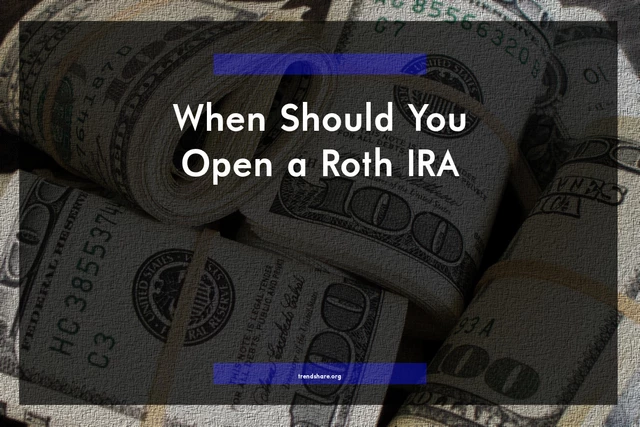last updated
When should you open a Roth IRA? What this post-tax investment does, why it matters, and why you should invest in your Roth IRA (or shouldn't).
More Investing Articles
Investing During the Coronavirus Pandemic
Investing for your retirement is essential, unless you know the secret lottery numbers, have a foolproof roulette system, or can win every sporting event bet for the next year). Figuring out how to invest isn't nearly that easy. The financial industry is full of jargon (some of it designed to extract money from investors like you). Unfortunately, some of the best retirement options have the worst names.
What is a Roth IRA?
A Roth IRA is an individual retirement account established by US law to encourage retirement savings through unique tax advantages. Contributions to the Roth IRA come from post-tax dollars. In return, qualified distributions from the Roth IRA are tax free. In other words, you pay taxes on the money you invest into your Roth IRA and pay no taxes on the money you take out of it.
Why Open a Roth IRA?
Whereas any 401(k) contribution you make comes from pre-tax dollars (thus reducing your adjusted gross income—the amount on which you pay federal taxes), you've already paid federal taxes on every dollar you contribute to a Roth IRA. Consequently, there's a limit as to how much you can sock away in this account every year. It's currently $5,500 for most people.
If you're in your 20s and maximize your contribution every year for 35 or 40 years, you could end up with hundreds of thousands of tax-free retirement dollars. This is a good deal!
How Do you Set Up a Roth IRA?
If you have a good online broker, setting up a Roth IRA is as easy as filling out a couple of forms and transferring in a contribution. You'll probably get a reminder from your broker about the April 15 deadline to contribute to the previous tax year's Roth IRA, as well as from any tax software you use.
You can also convert contributions to a 401(k) to a Roth IRA by paying retroactive taxes on your contributions. In this case, consult an expert in taxes or retirement planning. (It's easy to get the numbers wrong and hurt your contributions or end up with a larger tax bill than anticipated.)
Should You Invest in a Roth IRA?
The standout benefit of a Roth IRA is that you pay taxes now to avoid them in the future. This makes a lot of sense if your current tax rate is lower than your predicted tax rate. If you're just starting your career (20something) or have very cyclical income (one year over $100,000 and the next $40,000), then contributing the maximum allowed amount can make sense.
If you're like most people in the middle class, your expected taxable income will be lower in retirement than when you're working, so maximizing your Roth contribution is less important. Put the money where it matters more first, for example, to get matching 401(k) contributions.
Given the choice between paying off debt and contributing to any IRA, pay off your debt first.
What Should You Invest in in Your IRA?
If you're investing over the long term—especially if you're in your 20s or 30s—then buy an S&P 500 index fund. It's simple to manage, needs little oversight, and will earn you a solid return over the decades you're going to keep it.
It's possible to perform more active trading with a Roth IRA, perhaps skirting some of the capital gains taxes you'd otherwise have to pay for holding market positions less than a year, but consult a qualified tax attorney or investment advisor for more information.
← What is Dollar Cost Averaging? | What Makes Good Stocks Good?→
